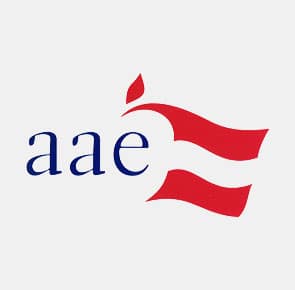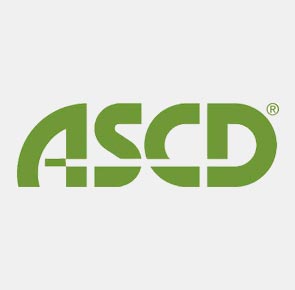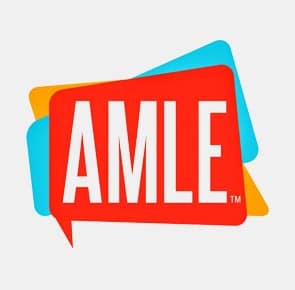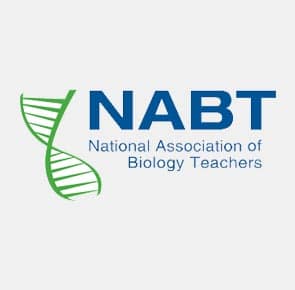University Headquarters (HQ) is an industry-leading, independent educational organization that provides independent college rankings using a proprietary formula to create first class unbiased rankings. The team at University HQ strives to provide accurate and trustworthy rankings that highlights the best online programs for education.
Earning a teacher education degree, whether through an online degree or on-campus degree, takes time, dedication, and effort. Whether you opt to begin with an associate degree, then move into a bachelor’s degree in education, you’re going to be spending between two and four years at your studies at your university or college and student teaching, which you must complete in person, even online students, before you become a teacher yourself. You’ll work on your general education courses, which give you a solid foundation for what you’ll be teaching to your students. Next, you’ll move into your core courses, which teach you about the process of teaching and allow you to focus on a specific subject, such as science or mathematics education, and a teaching level such as elementary education, early childhood education, K-12, or a specialty like special education or curriculum instruction. Finally, you’ll move into a short internship (student teaching), where you’ll begin putting the educational theory you learned in your online teacher education program into practice. This will prepare you for that happy day when you gain your teaching licensure, move into your own classroom, and begin teaching your own students in your teaching career. Of course, those who wish to get into college teaching or who want to work with adult learners may need to complete a master's degree program.
If you complete an elementary education degree and become an elementary school teacher, you’ll be most focused on early childhood education and human development during your university classes. You might love seeing young children “get” a new concept. That dawning understanding in their eyes gives you a feeling of satisfaction that you succeeded in teaching a student to begin understanding how letters form words and they can read! Or they’ll see how numbers relate to one another and they can add up to bigger numbers or be subtracted into smaller numbers.
Once you gain your teaching licensure and enter your own classroom to begin teaching, you should have a good background in early childhood development. You'll know the theories. You’ll have learned about primary education pedagogy and you use it every time you create a new lesson plan.
If you feel a genuine passion for teaching children, then teaching is your vocation, not just a profession. With each young life you touch, you are creating a legacy that may last for generations. Best of all, you’ll never work yourself out of a job—there will always be new children who need to learn. No matter what level you're interested in teaching (young children or high school students), you should take the time to explore the requirements of teacher education programs and request info from your state's Department of Education, which may have its own requirements for various teaching positions and teacher education programs, such as a bachelor's degree to teach K-12 and a master's degree to teach at a college or university or any adult learning course. Learners may also be required to complete advanced certificate programs or pass tests to become a specialist in a certain field (such as science education, mathematics education, or special education), and many who complete a teaching degree are expected to complete continuing education each year to maintain their teaching licensure. Some of these courses are available through online teaching programs, depending on the state.
Featured Online Education Programs
How to Earn an Online Degree in Education
As a teacher, your vocation will have a variety of components. You'll have the ability to affect the lives, learning, and future success of children, pre-teens, or teens every day. First, you have to have several personality traits that uniquely suit you to education. You’ll need a love of learning, to be conscientious, and to know what you’re doing and why. You’ll need to be prepared to be a caregiver and able to develop a respectful, trusting atmosphere in your classroom while you design your instruction based on the needs of your students and provide accessibility for all.
Organization will be key and you’ll need to know how to use the “Why?” questions, just as Socrates did. You will teach your students how to respect others and you’ll need to be able to develop a good rapport with each one of them, as well as their parents and other school staff. After all, you can't skip parent-teacher conferences if you teach elementary school or K-12 and expect to be successful. Even during the pandemic, these interactions continued through online teaching and communication.
Typical Degree Requirements
An online education degree or online teaching degree program follows a prescribed path, just as the in-person learning options do. Students will have to take and finish their general education credits; these include English, composition, math, history, and psychology classes. Every student at your university takes these classes as preparation for their chosen majors and many of them offer flexible or online options for these required courses.
Once students have finished those classes, they’ll begin their core courses within the school of education or teacher education degree major. Students will also take specialized classes within their teaching program or major, so they will be able to teach new concepts to their students once they're teaching a class. These include language arts, mathematics, social studies, science and liberal arts classes. Using language arts as an example, students can major in this as a specialization.
In general, students will have to take humanities, social science, and natural science or math classes to fill out their bachelor’s degree program. More specifically, your state may require that all teaching certification holders complete education programs. Students will have to be knowledgeable about professional and pedagogical preparation, so they know how to structure their lessons and lesson plans.
Typical Certifications Needed
 After you graduate from an online teaching degree or other online program, you need to take your licensing exam, complete an FBI background check, and get fingerprinted. You’ll have to renew your fingerprints and background check annually.
After you graduate from an online teaching degree or other online program, you need to take your licensing exam, complete an FBI background check, and get fingerprinted. You’ll have to renew your fingerprints and background check annually.
Students have to pass their licensing exam to get their certification or teaching licensure. If you missed a few credits necessary for graduation, you can still obtain a provisional teaching certificate in several states. You can then take the courses you need during a summer session of through an online portal, so you have every credit required for full teaching licensure.
If prospective students have a bachelor’s degree in another field, but they want to become a teacher, they’ll still have to complete an approved program. They will also have to document their mastery of important teaching concepts and show that they can apply them in the classroom. If you’re going to teach in a rural area or in a high-demand urban area, you may have to get either an “intern” or “provisional” certificate after you earn your degree and before you begin working as a teacher.
Academic Standards
Education programs across the country have high expectations. Students will have to complete a certain number of hours to graduate. You’ll take education courses, then begin working on a concentration (such as science education or special education), if you choose one.
If you’re going to be teaching at the elementary level or above, you’ll have to take more courses to cover the learning basics. These include science, chemistry fundamentals, physics, mathematics, biology, economics, composition, linguistics, history, science, technology, oral communication, English literature, and possibly even a foreign language. Your university’s core requirements will look similar, with small differences.
Find Your Online Education Program
Exams and Experience Needed
After you graduate, you’ll begin studying for your licensure exam. Your state will require you to meet certain education standards. In Minnesota, these include pedagogy exams, skills testing (reading, math, and writing), and content exams for any specific courses you will teach.
The best teachers have several skills and qualities that suit them for teaching.
- Excellent communication skills
- A commitment to learning all your life
- Experience working with kids of all ages
- Able to think on your feet
- Good interaction with a wide group of people
- Classroom experience
- Graduated from a state-approved teacher education program
- Willing to learn from a mentor
- Ability to reflect on advice you receive, then evaluate it
- Completed state licensing exam
Popular Education Major Concentrations
There are many education concentrations available to potential educators and students looking to specialize in a certain field within education. You can learn more about each of these education concentrations below:
Associate Degree in Education Online
You may want to work in a day-care classroom as a teacher or a teacher’s aide. At this level, you need no more than 60 credits to graduate before you receive your certification, nearly all of which can be completed through an online associate degree.
Example Coursework:
- Introduction to Early Childhood Education
- Health, Nutrition and Safety
- Practicum - Nurturing Relationships
Bachelor's Degree in Education Online
Next, you may choose to earn your bachelors in education so you can teach students either in elementary education, middle, or high school. At this level, you’ll be prepared to teach in a classroom starting at the kindergarten level, or you may choose to teach high school students who, themselves, may be thinking of gaining a college education.
Example Coursework:
- Assessment Issues
- Curriculum Development
- Educational Foundations
- Educational Technology
Online Master's Degree in Education
Finally, at the master’s in education level, you’ll be able to specialize in one area of education, such as special education or educational technology. Depending on the school level you’re most interested in, you’ll also take courses that focus on that level. These days, many if not most master's degrees in teaching offer courses through online programs. With distance or online learning, your lessons don't interfere with your work week.
Example Coursework:
- Foundations of Disability
- Foundations in Early Childhood & Early Intervention
- Behavior & Classroom Management
Associates, Bachelors, Masters with Cost Range for Each
| Degree Level | Cost Range |
|---|---|
| Associate | $4,500 (full-time, nine-month enrollment) |
| Bachelors | $630/credit hour, 1-11 credit hours and over 18 credit hours |
| Masters | $702/credit hour per semester |
Find Online Education Programs
Earning Potential and Career Salaries for Education Major Graduates
If you’re considering earning a degree beyond your high school diploma, take this into account. On average, if you have a diploma, you’ll earn about $700 per week in median wages. If you have an associate degree, you’ll find your median weekly salary increasing to between $825 and $850. With a bachelor’s degree, you’ll see a big jump, with your median weekly salary rising to about $1,175. After earning a master’s, your median weekly salary increases to roughly $1,400 and with a professional degree, it may rise to $1,800. With a doctoral degree, you may see a small drop in your median weekly earnings—it falls to just below $1,750.
You may decide to earn your online associate’s first, then decide if you’re going to advance any more. This is fine. It can be daunting to consider being in school for four years or more. Earning a two-year associate in applied science in education means you can get into a classroom (and begin earning) in about two years. Some education jobs require you to have at least 60 credit hours in education. This is where an associate’s fits the bill perfectly.
Maybe your career plans will require a bachelor’s degree or higher. If so, you’re going to have to work hard in your classes so you can graduate in four years.
Salary by Occupation
| Occupation | Entry-Level Salary Range | Mid-Career Salary Range | Late-Career Salary Range |
|---|---|---|---|
| Middle School teacher | $40,300 | $48,100 | $59,100 |
| Special Education Teacher, Early Education | $40,500 | $49,200 | $60,900 |
| Postsecondary Professor | $60,100 | $69,600 | $99,900 |
| Preschool Director | $34,400 | $41,200 | $48,300 |
Important Questions to Ask (FAQ)
How Long Does It Take to Earn an Education Degree?
While this answer used to be four years, this was when most students attended their classes on-campus. Now, students have some additional choices, including the online option. Depending on how an individual university has this structured, an undergraduate student who takes at least 15 credit hours each semester can earn their online bachelor's degree from their college or university in close to four years. However, most students decide to take only the minimum 12 credit hours per semester. This makes their program run close to five or even six years. Depending upon how flexible the university is with courses being offered (and how long a term or semester runs), students can anticipate graduating in five years, on average.
How Much Does a Degree in Education Cost?
An undergraduate degree in education costs $28,750 for one academic year (fall and spring). Usually there is a certain amount charged per credit hour to be earned. For an out-of-state student, the academic year costs can run up to $53,504, and for an international student, $59,312.
In another state where costs are higher, one academic year for an in-state student runs $55,320. This estimate is for 12 to 18 credit hours per semester.
Does the School Have the Teaching Major(s) You’re Considering?
When you know that you want to major in education, you should find out if the colleges and universities you’re most interested in carry this major. You should check the academic catalogs of each university to verify which ones do carry an education major and verify with your state’s department of education that the colleges you’re considering offer the appropriate teacher education program and teaching degree that you need for licensure.
If a university you’re considering doesn’t carry any education major, then it’s time to cross that school off your list. Keep checking the other schools. For those that do have an education major, begin looking over their programs so you get a better idea which university interests you the most in terms of what degrees in education they offer and whether or not that lines up with your goals. If it does, you can seek admission to their traditional teaching degree program or online learning option with no worries.
How Many Students Graduate “On Time,” in Four Years?
Just over two years ago, 41% of undergraduate students graduated within the four-year time frame. The remainder either graduate five or six years after starting school; others leave school and don’t return.
One-quarter of students drop out after the four-year mark. Most students do so because of the lack of funds. For those students who take five or six years to graduate, bank accounts can run low, especially if the student attended a private institution.
What Kind of Accreditation Does the Program Hold? How is it Regarded in the Field?
Universities should be accredited institutionally by a regional accreditation commission. Accreditation informs students, parents and employers that the university’s faculty members are all of high quality, and that the material they teach is of equally high quality.
A school or college of education should be accredited by the Council for the Accreditation of Educator Preparation (CAEP).
(CAEP is the consolidation of TEAC and NCATE.) CAEP’s accreditation is highly regarded in this profession because of its high standards that all accredited schools are supposed to satisfy.
Software, Technology and Skills Needed
As an educator at any level, you need to have technical skills, people skills (also called soft skills), and teaching skills.
Technology:
- General tech applications
- Internet communication
- Keyboarding
- General computer operations, such as booting the system
- Word processing
- Spreadsheets
- Non-internet databases
- Graphics
People (student) skills:
- Leadership
- Communication
- Teamwork
- Problem-solving
- Social and emotional intelligence
- Cultural competence
Software:
- Digital literacy
- Evaluate and question sources
- Draw a strong conclusion
- Increase creativity
- Good digital citizenship
Find Your Online Education School
Scholarships
-
Charles Butt Scholarship for Aspiring Teachers
Amount: $8,000 (Renewable)
Deadline: VariesThis Texas scholarship awards $8,000 in annual funding for up to four years to winners. In addition, scholarship recipients can take part in development opportunities and ongoing training, which will better equip them for their classroom duties.
Students can benefit from mentorship opportunities, working with sitting public-school educators. In this, recipients would be just one in a statewide network of aspiring teachers. This has been facilitated by the Raise Your Hand Texas Foundation.
This new scholarship is awarded to students for the first time in the 2018-2019 school year. Roughly 100 education majors receive funding in the first academic year. This funding will be disseminated across 11 partner university teacher prep programs. Within the next few years, this program is slated to grow, eventually including 500 education majors each year.
-
The R.H. and Jane Logan Scholarship
Amount: $4,000 (Renewable)
Deadline: January 31This is the largest endowed scholarship fund gifted to Washington State University. WSU alumnus Roscoe “Rock” Logan and Jane, his wife provided the gift through their estate. Students of education are awarded $4,000 annually for up to four years.
Students in the undergraduate or graduate education program qualify, as long as they intend to teach in a public-school Additional qualifications include a 3.0 or higher grade point average and a documented financial need (as stated on FAFSA). To be considered for this scholarship, students must submit their WSU General Scholarship Application by January 31; their FAFSA should be completed by November 30 of the preceding year.
-
Knowles Science Teaching Foundation
Amount: $10,000 (For Up to 2 Years)
Deadline: VariesThis award provides teaching fellowships to education students who plan to teach mathematics and science. These students should have earned, at the least, a bachelor’s degree in mathematics or science; they will be required to demonstrate their commitment to teach these subjects in a high school setting. This fellowship offers financial and professional support for a period of up to five years. In addition, students receiving this award will be provided up to $10,000 to go toward their tuition each year for up to two years. They will also receive a monthly stipend as long as they are enrolled in a recognized teacher credential program.
-
John C. and Susanne Blough Abbott Scholarship in Education
Amount: Varies
Deadline: FAFSA DeadlineThis scholarship is intended for undergraduate students who either plan to major in, or are already majoring in, a teacher preparation program within the College of Education. These students should have a documented financial need for funds to further their education and meet college expenses. The first preference for this scholarship is given to students who plan to teach within urban areas once they graduate.
-
Terry and Constance Updegraff Eshenour Endowed Scholarship in the College of Education
Amount: Varies
Deadline: VariesStudents who are attending full-time and majoring in education are eligible for this award. To further qualify, these students should have superior academic records, financial need and be Pennsylvania residents. In addition, they should be students from underrepresented demographics (ethnicity, gender, national background and culture), all of which benefit the university’s student body.
Professional Organizations
- AAE
- ASCD
- AMLE
- NEA
- NABT

AAE
Association of American Educators
Instead, it’s a national organization that promotes teacher advocacy and professional development. At its founding, its focus was, and still is, on providing the best environment for educating children. It also supports more parental involvement, local control, and higher standards of excellence in the field of education.

ASCD
Association for Supervision and Curriculum Development
ASCD is a non-profit organization created to represent approximately 150,000 teachers worldwide. Its membership includes administrators, teachers and other professionals whose work involves education. Members receive several benefits and opportunities for professional development. At the lowest tier, Basic members are able to receive a subscription to Educational Leadership, which is a magazine that reports the newest techniques, facts, and information concerning teaching students.
ASCD members are also able to gain access to educational conferences and professional development workshops, which allow them to refine their teaching techniques. Members are also able to network with each other.

AMLE
Association for Middle Level Education
AMLE advocates for teachers of middle school students in the U.S. Members receive several benefits, including several publications, which enable them to stay up-to-date with the newest developments in education.
AMLE also allows members to take part in even more structured professional development, through workshops and events that show teachers how to get needed insight into childhood development, improve their teaching methods, and network with other education professionals.

NEA
National Education Association
The NEA is a 3.2 million-member teacher organization. Members work at every educational level and have access to quality education within the U.S. NEA also advocates for teachers at both the state and national level.
Members of the NEA are able to sign up for legal support and insurance, workshops, and professional development opportunities. To make membership easier, each state has its own chapter, which enables teachers to join a statewide group that focuses more on concerns and issues of fellow teachers in their own state.
This organization provides scholarships and grants to teachers so they can purchase needed class materials and learning support services. Teachers can get donated books, facility improvements, funding, and even facility improvements for both school and classroom libraries.
The NEA facilitates and conducts research on current education issues. This allows members to get a close-up look into exploring the challenges they are expected to confront in their schools. Member teachers are able to take and complete online courses that equip them to handle early childhood literacy, bullying, and help their students achieve more.

NABT
National Association of biology Teachers
The NABT assists biology teachers to advocate for fellow biology teachers across the country. Beginning in 1983, NABT has given member teachers opportunities to gain more knowledge in the biology field and enabled their ability to network with other education professionals.
NABT member teachers who want to deepen their professionalism can participate in conferences and workshops. Teachers who attend can hear expert educators, take part in hands-on demonstrations, and benefit from information sessions.
NABT members gain access to the American Biology Teacher, an award-winning journal focused on biology teachers from kindergarten through college. Readers are able to use research to help create imaginative lesson plans and science experiments. They also gain access to free teaching materials that will help them to set and meet classroom goals as they improve their teaching skills.
Choosing an Accredited College
Quite simply, an unaccredited education program or university means that you won’t be able to access federal financial aid (that FAFSA application) or receive higher salary offers. Depending on your state, you may not even have the option to take the necessary exams to receive a teaching license unless you attend an accredited program.
As you check various universities and colleges out, make sure that you dig deeply to verify whether the university or education program is accredited or not. Accreditation is a voluntary step for a school, so not every program will be accredited. However, you should not think of accreditation as voluntary considering the affect it can have on your financial aid options and the quality of your awarded bachelor's degree or master's degree.
This lack of accreditation means that you, your parents, financial aid organizations, and employers wouldn’t be sure of the quality of your education. Without accreditation, they won’t know whether your professors were of the best quality.
A top-notch College of Education should have an accreditation from an education-based accrediting organization as well, or a state-approved teacher preparation program offering education degrees. In addition, if it has accreditations from other agencies to cover special education, mental health, athletics, speech and hearing, school psychology, elementary education, and a state education department, then you will know the program is definitely of the highest quality.
Online vs. On-Campus vs. Hybrid
On-campus classes are what you experienced, beginning in kindergarten, going through 12th grade. You were able to benefit from immediate give-and-take from your teachers and fellow students. You knew assignment deadlines were firm, unless the teacher or instructor changed them. You were able to develop a community with fellow students, getting to know them, building relationships, and becoming familiar with your teachers. You didn’t have to wait for several hours or even days to get an answer to a question you had; it was answered immediately. You were able to learn in a style that best suited you; listening, discussing, or even hands-on.
Online courses are taken 100% away from the university’s campus. You don’t have to worry about getting dressed, putting gas in your car, getting on a bus, or showing up on time to an on-campus classroom. Instead, you can wake up and, ten minutes later, still in your pajamas, “attend” class virtually. Nobody will know you’re still in your T-shirt and sleep pants. If your schedule changes from week to week, this isn’t a concern, either. Just sit down when you have a good block of time to read, study, consider, and work on assignments. While you won’t have immediate feedback from your instructors or fellow students, you will be able to sign up for a class forum, where you discuss class assignments and issues with everyone.
Hybrid courses are a good mix of on-campus and online classes. The majority of your classes will take place virtually, from your computer screen. However, you’ll be able to attend a set number of “residence weekends,” when your classes are taken on-campus. Each university sets its own residence weekend schedule; this may range from one weekend all the way up to four weekends. You’ll be able to benefit from both formats.
Frequently Asked Questions
Do I need a master’s degree in education?
While you won’t need an advanced degree in order to become a teacher, you may need one if you wish to teach college courses or work in administration within the educational system. You can also use master’s degree courses in order to maintain your teaching licensure and those with higher degrees often earn more money no matter where they work. Thus, it may be worth it to gain your master’s degree over time, even if you aren’t looking to move into a new field.
Can you earn a teaching degree online?
There is some good news and some bad news in this department. You can earn credit hours for a bachelor’s or master’s degree online from many schools across the country. However, those who are just earning their bachelor’s in education will still need to complete student teaching, which must still be done in-person. If you are earning credits online, your school can likely work with you to find a classroom in your local community where you can complete your student teaching, but you may want to talk to someone in the department before you start a teaching degree program to make sure.
Where can I explore degree options?
Those who are considering earning a degree in education can explore degree options online from local or non-local institution. You can review lists of available degrees in education here on University Headquarters. Or you can search for teaching jobs open in your local area if you want to know what your local options are after you earn your degree. To be honest, you might just think back to your own education and get a good idea of what career options are available to you within the education arena.
How can I fund my education?
Most students require at least some financial aid in order to fully fund their education. This is available in several formats. There are scholarships and grants offered by schools, businesses, organizations, the government, and non-profits from all over the country. Also, those who agree to work in high-need areas can find even more assistance with funding, though you must complete the required time in these areas or the assistance you received may be transferred into a loan. And then there is the possibility of loan forgiveness for those who work in certain sectors and the option for student loans for those who have exhausted every other possibility.
Does the College Have Post-Graduate Job Placement and Assistance?
You can’t afford to take time to redraft your resume, write attention-grabbing cover letters, schedule job interviews, practice your interview skills, or parry salary offers. Not when you’re student-teaching and getting ready to graduate.
That is why most universities and colleges have offices where career and placement service professionals can help you with all of the above. If your resume needs to be updated or even totally rewritten, they will help you. If you need to brush up on your interview skills, they will assist you.
Some campuses even hold professional development workshops. These may include networking skills, resume writing, and interviewing skills.
Why You Need to Consider How Rating and Accreditation Can Affect Your Salary
In areas where teacher shortages are the norm, you want to have solid proof that your teacher preparation program was accredited. If so, you will be highly sought-after. Your starting salary will range from $31,000 up to about $52,000, depending on the area where you are going to work.
If you’re not sure why accreditation is important, you need to remember that employers check for this piece of information. If the school’s accreditation status is unclear or even shaky, you may not receive the job offer you want; or salary offers may be significantly lower than you anticipated. When you are in school and considering a transfer to an accredited program in another college, that second program won’t accept transfer credits from your current university.
Ratings also matter. Students from colleges and universities that have received high rankings will receive higher wage offers. Ranking publications look at:
- Completion rates
- Faculty salaries
- STEM orientation
Universities with high marks in all four areas receive higher rankings. Which means you, as an alumnus or alumna, will receive better job offers.
Search All Programs
